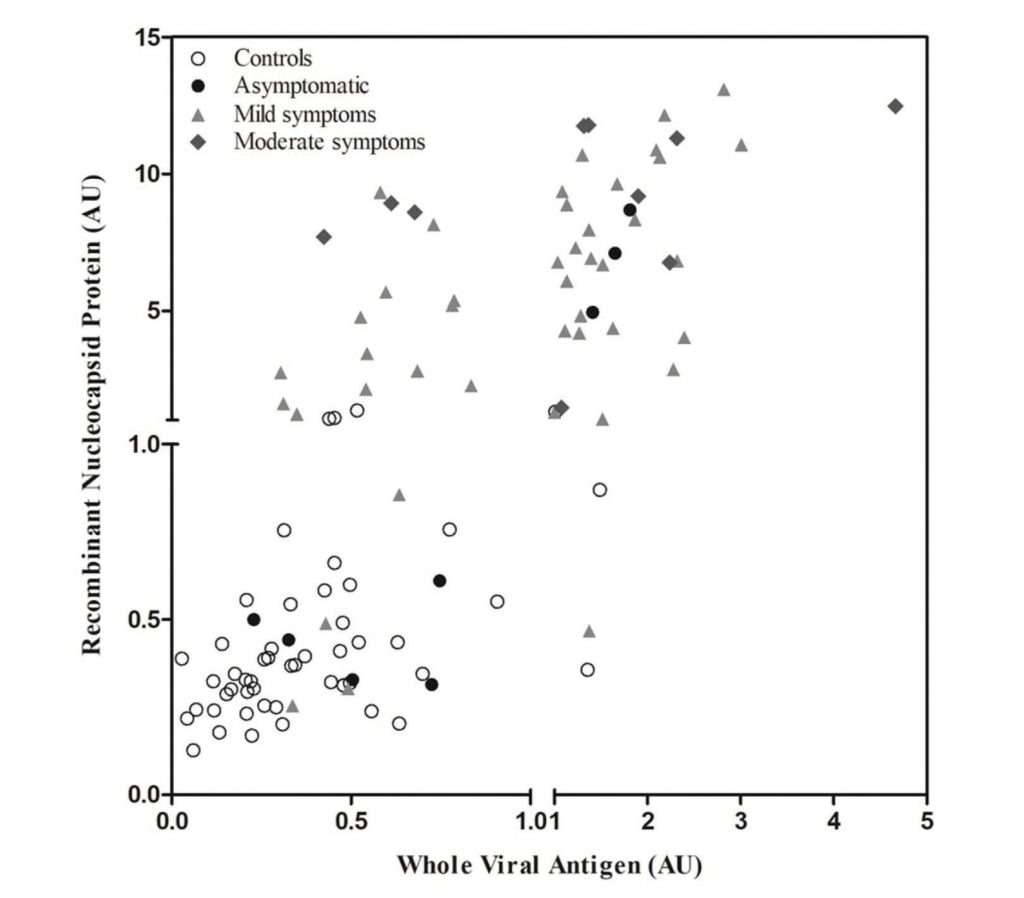Clinics (Sao Paulo). 2020;75:e2290.
Natural versus Recombinant Viral Antigens in SARS-CoV-2 Serology: Challenges in Optimizing Laboratory Diagnosis of COVID-19
DOI: 10.6061/clinics/2020/e2290
OBJECTIVES:
COVID-19 is a public health emergency of international concern whose detection in recovered asymptomatic patients is dependent on accurate diagnosis as it enables the estimation of the susceptibility of the population to the infection. This demand has resulted in the development of several commercial assays employing recombinant proteins, but the results of these assays are not reliable as they do not involve comparison with natural viral antigens. We independently used the SARS-CoV-2 whole viral antigen (WVA) and recombinant nucleocapsid protein (rNP) to develop in-house ELISAs for IgG detection; the results of these ELISAs were then compared to obtain reliable results.
METHODS:
WVA and rNP ELISAs were performed on COVID-19 negative sera from patients before the pandemic in Brazil, and on RT-qPCR-positive or SARS-CoV-2-IgG against rNP and IgG against WVA-positive samples from recently infected patients in Sao Paulo, Brazil.
RESULTS:
Both ELISAs detected a large fraction of infected patients but exhibited certain drawbacks. Higher signals and lower numbers of false-negatives were observed in rNP ELISA; however, a higher fraction of false-positives was observed in control groups. A high number of false-negatives was observed with WVA ELISA. Correlating the results of rNP and WVA ELISAs resulted in improved performance for COVID-19 diagnosis.
CONCLUSION:
The choice of antigen is an important aspect in optimizing the laboratory diagnosis of COVID-19. The use of rNP ELISA for the detection of anti-SARS-CoV-2 IgG antibodies seems promising, but comparison of the results with those of WVA ELISA is crucial for accurate test development prior to commercialization. IgG serology using several assays, and with the spectral patterns of SARS-CoV-2, resulted in confusing information that must be clarified before the establishment of diagnostic serology criteria.
6



